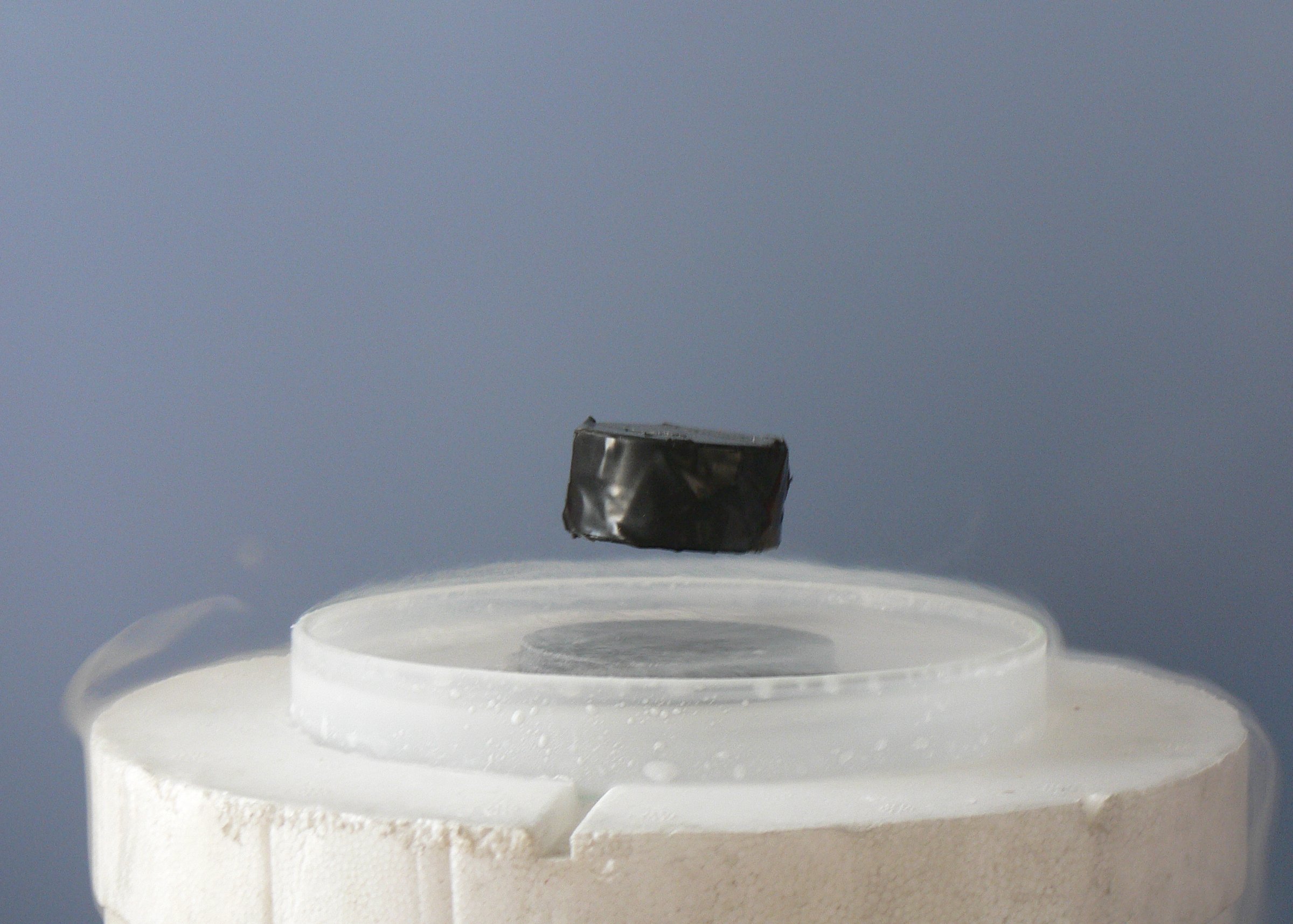
Experimental and theoretical rationalization for the base pairing abilities of inosine, guanosine, adenosine, and their corresponding 8‐oxo‐7,8‐dihydropurine, and 8‐bromopurine analogues within A‐form duplexes of RNA
Sign Up to like & getrecommendations! Published in 2020 at "Biopolymers"
DOI: 10.1002/bip.23410
Abstract: Inosine is an important RNA modification, furthermore RNA oxidation has gained interest due, in part, to its potential role in the development/progression of disease as well as on its impact on RNA structure and function.… read more here.
Keywords: pairing abilities; corresponding oxo; base pairing; base ... See more keywords

Cyano Modification on Uridine Decreases Base‐Pairing Stability and Specificity through Neighboring Disruption in RNA Duplex
Sign Up to like & getrecommendations! Published in 2018 at "ChemBioChem"
DOI: 10.1002/cbic.201800399
Abstract: 5‐Cyanomethyluridine (cnm5U) and 5‐cyanouridine (cn5U), the two uridine analogues, were synthesized and incorporated into RNA oligonucleotides. Base‐pairing stability and specificity studies in RNA duplexes indicated that cnm5U slightly decreased the stability of the duplex but… read more here.
Keywords: rna; base pairing; pairing stability; base ... See more keywords

DNA Base Pairing-Inspired Supramolecular Nanodrug Camouflaged by Cancer-Cell Membrane for Osteosarcoma Treatment.
Sign Up to like & getrecommendations! Published in 2022 at "Small"
DOI: 10.1002/smll.202202337
Abstract: Osteosarcoma (OS) is one of the most common bone malignant tumors which mainly develops in adolescents. Although neoadjuvant chemotherapy has improved the prognosis of patients, numerous chemotherapeutic challenges still limit their use. Here, inspired by… read more here.
Keywords: cell; cell membrane; base pairing; cancer cell ... See more keywords

Interrogation of Base Pairing of the Spiroiminodihydantoin Diastereomers Using the α-Hemolysin Latch.
Sign Up to like & getrecommendations! Published in 2017 at "Biochemistry"
DOI: 10.1021/acs.biochem.6b01175
Abstract: Spiroiminodihydantoin (Sp) is a hyperoxidized form of guanine (G) resulting from oxidation by reactive oxygen species. The lesion is highly mutagenic, and the stereocenter renders the two isomers with distinct behaviors in chemical, spectroscopic, enzymatic,… read more here.
Keywords: base pairing; hemolysin latch; base; base pairs ... See more keywords

Alchemical Free-Energy Calculations of Watson–Crick and Hoogsteen Base Pairing Interconversion in DNA
Sign Up to like & getrecommendations! Published in 2022 at "Journal of Chemical Theory and Computation"
DOI: 10.1021/acs.jctc.2c00848
Abstract: Hoogsteen (HG) base pairs have a transient nature and can be structurally similar to Watson–Crick (WC) base pairs, making their occurrence and thermodynamic stability difficult to determine experimentally. Herein, we employed the restrain–free-energy perturbation–release (R-FEP-R)… read more here.
Keywords: base pairing; free energy; watson crick; hoogsteen base ... See more keywords

Photoisomerizable Guanosine Derivative as a Probe for DNA Base-Pairing in Langmuir Monolayers
Sign Up to like & getrecommendations! Published in 2019 at "Langmuir"
DOI: 10.1021/acs.langmuir.9b00429
Abstract: Mixtures of azo-functionalized amphiphilic derivatives of guanosine and of amphiphilic derivatives of other DNA nucleobases were deposited at an air–water interface and repeatedly irradiated with light of 340 and 440 nm wavelengths. The consequent switching… read more here.
Keywords: langmuir monolayers; probe; photoisomerizable guanosine; pairing langmuir ... See more keywords

Nature's Selection of Geranyl Group as a tRNA Modification: The Effects of Chain Length on Base-Pairing Specificity.
Sign Up to like & getrecommendations! Published in 2017 at "ACS chemical biology"
DOI: 10.1021/acschembio.7b00108
Abstract: The recently discovered geranyl modification on the 2-thio position of wobble U34 residues in tRNAGlu, tRNALys, and tRNAGln in several bacteria has been found to enhance the U:G pairing specificity and reduce the frameshifting error… read more here.
Keywords: chain length; pairing specificity; geranyl; base pairing ... See more keywords

Chemical Modification of the siRNA Seed Region Suppresses Off-Target Effects by Steric Hindrance to Base-Pairing with Targets
Sign Up to like & getrecommendations! Published in 2017 at "ACS Omega"
DOI: 10.1021/acsomega.7b00291
Abstract: Chemical modifications of 2′-O-methyl (2′-OMe) and locked nucleic acid (LNA) of the nucleotides in the seed region (positions 2–8) of the small interfering RNA (siRNA) guide strand significantly reduced seed-matched (SM) off-target effects. The siRNA… read more here.
Keywords: target effects; seed; target; seed region ... See more keywords

Influence of 5-Halogenation on the Base-Pairing Energies of Protonated Cytidine Nucleoside Analogue Base Pairs: Implications for the Stabilities of Synthetic i-Motif Structures for DNA Nanotechnology Applications.
Sign Up to like & getrecommendations! Published in 2022 at "Journal of the American Society for Mass Spectrometry"
DOI: 10.1021/jasms.2c00137
Abstract: DNA nanotechnology has been employed to develop devices based on i-motif structures. The protonated cytosine-cytosine base pairs that stabilize i-motif conformations are favored under slightly acidic conditions. This unique property has enabled development of the… read more here.
Keywords: nanotechnology; base pairs; base pairing; halogenation ... See more keywords

Why lamivudine assembles into double-stranded helices in crystals: salt heterosynthon versus base-pairing homosynthon
Sign Up to like & getrecommendations! Published in 2018 at "CrystEngComm"
DOI: 10.1039/c8ce00100f
Abstract: Here we were interested in obtaining a better understanding of the competition between the salt heterosynthon and the base-pairing homosynthon formed by the anti-HIV drug lamivudine in the presence of strong acids. Even though the… read more here.
Keywords: pairing homosynthon; lamivudine duplexes; base pairing; lamivudine ... See more keywords

CuII-mediated DNA base pairing of a triazole-4-carboxylate nucleoside prepared by click chemistry.
Sign Up to like & getrecommendations! Published in 2023 at "Chemical communications"
DOI: 10.1039/d2cc06205d
Abstract: Artificial metal-mediated DNA base pairing is a promising strategy for creating highly functionalized DNA supramolecules. Here we report a novel ligand-type triazole-4-carboxylate (TazC) nucleoside that is readily prepared by the click reaction. TazC nucleosides were… read more here.
Keywords: mediated dna; base pairing; chemistry; triazole carboxylate ... See more keywords